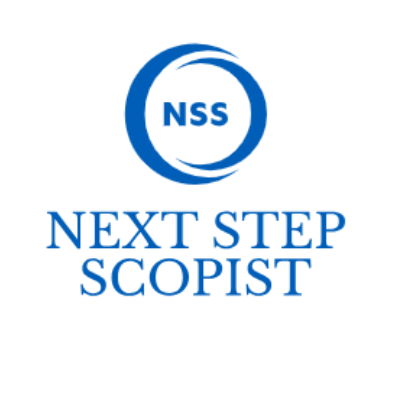July 6th, 2024 – Differences Between Scopists And Court Reporters

I was asked a question once that threw me for a bit of a loop. Someone asked me, “Why don’t you just be a court reporter?”
This came up organically. A new person I met asked me what I do for work, and I told them. They were unsure what a scopist actually was, so I gave a brief summary and description of my job. This prompted them to ask me why I didn’t just go straight for court reporting. They completed this by saying, “You’re already qualified, you may as well just do that instead.”
I realized at that moment that there was definitely some confusion. For those of you who don’t know, I am NOT trained to be a court reporter. I never went to school for it, and I don’t have certifications to practice court reporting. During this conversation, I understood not only that this person did not know this information about me, but they also seemed to not understand the difference between a scopist and a court reporter. I gave an honest answer, “I’m not actually qualified to do that. You’d need different skills and schooling than I have.”
This conversation did get me thinking that this might very well be a common misconception. Scopistry is still growing, it’s still relatively unknown. There is a lot of room for questions, and misunderstanding. Therefore, today, I’d like to discuss the key differences between a scopist and a court reporter.
What is a court reporter? What is a scopist?
The definitions of these jobs are very different, and the responsibilities of each are different as a result. Court reporters are present during court proceedings and transcribe the spoken word to stenographic text.
A scopist assists the reporter. Scopists will take the transcript the court reporter has produced and edit it for grammar, spelling, and punctuation. They are also responsible for translating any of the stenograph text that was not translated from the original. This is done with audio recordings of the proceedings.
A court reporter can be their own scopist, but without proper training, a scopist cannot be their own court reporter.

Educational Requirements
There are higher educational requirements for a court reporter than for a scopist. A court reporter must complete secondary schooling, while also completing a college course on court reporting. This looks like a two- to four-year bachelor’s or associate’s degree from an accredited college. Upon graduation, programs approved by the NCRA require that you type 225 words per minute.
Scopists do not need to attend school in order to work as a scopist, but it is recommended, and an excellent step in becoming credible and successful.
Court reporters also need to have a certificate. There are a few different certificates to choose from, and they have different requirements and examinations. There currently are no certifications for scopists, although that may change in the future.

Equipment
Admittedly, there can be similarities between the equipment used by scopists and the equipment used by court reporters. However, there is one great difference: the stenotype machine. Court reporters use this specialized typewriter to enable them to type faster and record the speakers in real-time during court proceedings.
A scopist is not required to use that machine, as we are writing in plain English rather than steno. A scopist’s equipment consists of more common household electronics like laptops/PCs, headphones, and traditional keyboards. Although a foot pedal can be incredibly handy.

Environment/Remote
This was a difference that was much more stark before the pandemic. But it is one that is still relevant, especially now that people are transitioning back to the offices either full-time or hybrid remote. Court reporters, if the proceedings are in-person, would be expected to be physically present at the proceedings. But it is more common now to have virtual depositions and examinations. Scopists are not required to do any in-person work with their transcripts and can work fully remotely.
—-
I hope this brought some clarity to the differences between scopists and court reporters! If you liked this post, want to see more, or have any questions, make sure to leave a comment down below. If you want to see more, check out the last post below or the previous posts on the blog. And if you’re interested in learning more scopist, proofreading, or transcription information, make sure to check back for a new post on the Next Step Scopist blog!
—-
Last Post: Code of Conduct and Ethics in Scopistry
Next Post: What To Do During A Work Drought

Leave a Reply